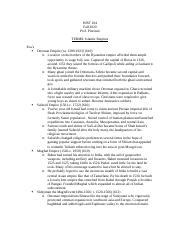In the era of land-based empires, consolidating power was a complex and multifaceted process that involved a combination of military might, economic control, and political strategy. Empires sought to establish and maintain their dominance over vast territories, often through a combination of conquest, diplomacy, and administrative reforms.

Military Conquest
One of the primary means by which land-based empires consolidated power was through military conquest. Empires expanded their territories by conquering neighboring states and incorporating them into their own political structures. This often involved the use of force, as empires sought to subdue and control local populations.
Military conquest allowed empires to acquire resources, expand their borders, and increase their influence. By controlling key strategic locations and establishing military garrisons, empires could maintain their authority over conquered territories and prevent rebellions or invasions.
Economic Control
Economic control was another important aspect of consolidating power for land-based empires. Empires sought to control economic resources, such as land, labor, and trade, in order to generate wealth and maintain their dominance. This often involved establishing monopolies over key industries, regulating trade, and imposing taxes on conquered territories.
Economic control allowed empires to fund their military campaigns, build infrastructure, and support their growing populations. By controlling economic resources, empires could prevent the emergence of rival powers and maintain their financial stability.
Political Strategy
In addition to military conquest and economic control, land-based empires also used political strategy to consolidate their power. This involved establishing effective administrative systems, promoting political alliances, and suppressing dissent.
Empires established bureaucracies and appointed officials to govern conquered territories, ensuring the smooth functioning of the empire and maintaining control over local populations. They also sought to form alliances with other states, both within and outside their borders, to prevent the formation of rival coalitions and consolidate their influence.
To suppress dissent and maintain order, empires often employed harsh measures, such as political purges, suppression of dissent, and control over the media. By eliminating or controlling potential threats to their authority, empires could maintain their political stability and prevent internal revolts.
Case Studies
The Roman Empire
The Roman Empire, one of the most successful land-based empires in history, employed a combination of military conquest, economic control, and political strategy to consolidate its power. The empire expanded its territories through military campaigns, establishing control over vast territories in Europe, North Africa, and the Middle East.
Economically, the Roman Empire controlled trade routes, established monopolies over industries, and imposed taxes on conquered territories. The empire used its wealth to fund its military campaigns, build a vast network of roads and infrastructure, and provide for its citizens.
Politically, the Roman Empire established a centralized bureaucracy, appointed governors to rule conquered territories, and suppressed dissent. The empire also promoted political alliances with other states, such as the Parthian Empire, to prevent the formation of rival coalitions.
The Chinese Empire
The Chinese Empire, another major land-based empire, also used a combination of military conquest, economic control, and political strategy to consolidate its power. The empire expanded its territories through military campaigns, establishing control over vast areas of East Asia.
Economically, the Chinese Empire controlled agriculture, established trade monopolies, and imposed taxes on conquered territories. The empire used its wealth to fund its military campaigns, build infrastructure, and support its growing population.
Politically, the Chinese Empire established a centralized bureaucracy, appointed governors to rule conquered territories, and suppressed dissent. The empire also promoted Confucianism, a system of ethical and social values, to maintain social order and loyalty to the emperor.
Common Mistakes to Avoid
When consolidating power in this era, land-based empires often made several common mistakes:
- Overexpansion: Empires could overextend themselves by conquering too much territory, making it difficult to maintain control over their vast domains.
- Excessive taxation: Imposing excessive taxes on conquered territories could lead to resentment and rebellion.
- Suppression of dissent: Harsh measures to suppress dissent could alienate local populations and lead to internal unrest.
- Failure to adapt: Empires that failed to adapt to changing political, economic, and military conditions could decline and collapse.
FAQs
Q: How did land-based empires acquire resources?
A: Empires acquired resources through military conquest, economic control, and trade.
Q: Why did empires establish political alliances?
A: Empires established political alliances to prevent the formation of rival coalitions and consolidate their influence.
Q: How did empires maintain control over conquered territories?
A: Empires maintained control over conquered territories through military garrisons, administrative systems, and the suppression of dissent.
Q: What were some of the common mistakes made by land-based empires?
A: Common mistakes included overexpansion, excessive taxation, suppression of dissent, and failure to adapt.
